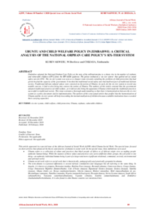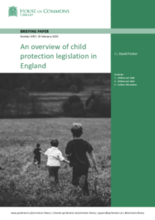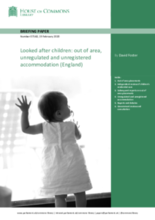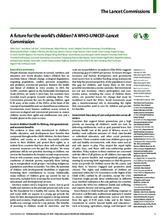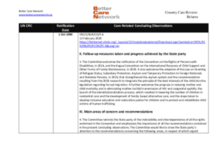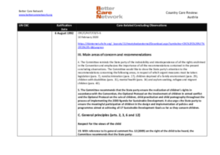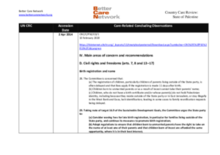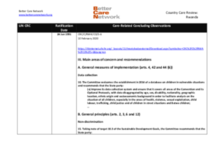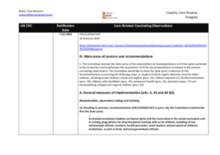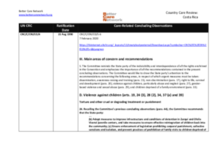Displaying 231 - 240 of 1798
The authors of this article contend that the government of Zimbabwe adopted traditional practices of child welfare in its National Orphan Care Policy, yet it did not also bring the apparatus (Ubuntu) which made the traditional practices successful in traditional society.
This briefing gives a very broad overview of the legislative framework for child protection in England.
This briefing provides information on two separate but related topics concerning looked after children in England: out of area and distant placements and unregulated and unregistered accommodation
This WHO–UNICEF–Lancet Commission lays the foundations for a new global movement for child health that addresses the two crises of climate change and predatory commercial exploitation, and presents high-level recommendations that position children at the centre of the Sustainable Development Goals (SDGs).
This country care review includes the care related Concluding Observations adopted by the Committee on the Rights of the Child.
This country care review includes the care related Concluding Observations adopted by the Committee on the Rights of Persons with Disabilities and the Committee on the Rights of the Child.
This Country Care Review includes the care-related concluding observations adopted by the Committee on the Rights of the Child as well as ratification dates.
This Country Care Review includes the care-related concluding observations adopted by the Committee on the Rights of the Child and the Committee on the Rights of Persons with Disabilities, as well as other care-related concluding observations, ratification dates, and links to the Universal Periodic Review and Hague Intercountry Adoption Country Profile.
This country care review includes the care-related Concluding Observations adopted by the Committee on the Rights of Persons with Disabilities and the Committee on the Rights of the Child.
This country care review includes the care related Concluding Observations adopted by the Committee on the Rights of Persons with Disabilities and the Committee on the Rights of the Child.

